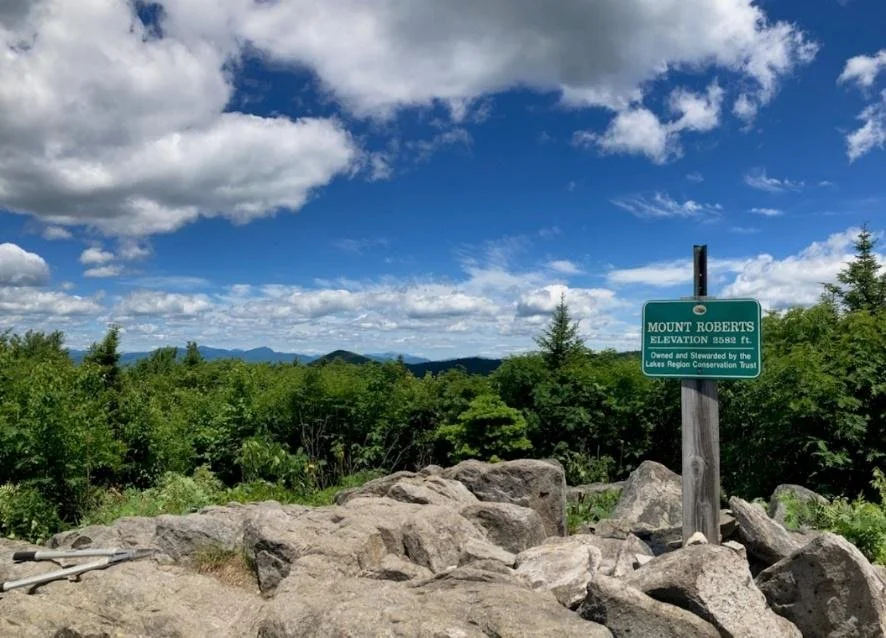Reblazing trails, clearing blowdowns, and removing a fallen tree from a field was what Phil and I set out to do on a blazing (no pun intended) hot day in early August. Phil, a former trustee and committee member and current stewardship volunteer and member (to name a few) of the Lakes Region Conservation Trust is also the property adopter of the Homestead Forest Conservation Area, which encompasses 604 acres of fields, forests, and trails in Ashland, NH; a conservation initiative he spearheaded through a generous donation to LRCT.
As Phil and I ascended the Gibban Trail, a trail named after his third golden retriever, he shared various facts about his land from which I learned so much - how a mossy field is an indication of moist, poor soil; how it is best to wait until late summer to mow fields to prevent disruptions to nesting bird and mammal habitats; and how he aspires to save as many white oak saplings as possible when mowing his fields due to their important role in the ecosystem. I later read that white oaks are a keystone species that create valuable habitat and whose acorns are a preferred food source for many mammals and birds. Compared to other species in the oak family, white oaks have the slowest growth rate and take decades to reach maturity. Thus, their protection is a high priority.
Throughout my experience as an AmeriCorps member, I have learned so much from the many volunteers, trail adopters, and property adopters I have had the pleasure of working alongside - from building water bars and check dams to prevent erosion on trails, to identifying and pulling invasive plants, to learning about the unique historical backgrounds of the many easements LRCT owns and stewards, and so much more. I have even gained new skills I never thought I’d have, like knowing how to operate a brush hog, dock a larger than average pontoon boat, and tell the difference between swamp dewberry and poison ivy.
The thoughtful land use decisions that stewards like Phil make have deepened my own interests in natural resource protection and conservation. As I prepare to walk away from this program in October, I have been reflecting on my experience and how I’d like to apply the skills I have gained in my future career. In the coming years, I plan to further my education in environmental science and management to study how our developmental actions impact our natural resources and the many organisms that live within them, as well as strategies to mitigate those impacts. I look forward to continuing to give back to the environment over the next 8 weeks and beyond.
Anna graduated from the University of New Hampshire in 2020 with a Bachelor’s degree in Community and Environmental Planning and a minor in Environmental Conservation and Sustainability. Learn more about Anna here!




